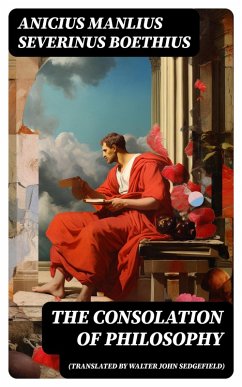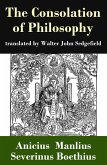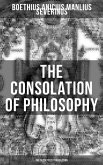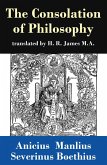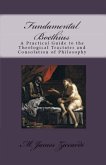In "The Consolation of Philosophy," translated by Walter John Sedgefield, Boethius presents a poignant exploration of the nature of happiness, fate, and the human condition during his unjust imprisonment. Written in the early sixth century, this philosophical treatise takes the form of a dialogue between Boethius and Lady Philosophy, who personifies wisdom. The work is characterized by its blend of classical philosophy and poetic expression, reflecting the intellectual currents of late antiquity and the early medieval period. Through its compelling arguments and lyrical prose, Boethius navigates themes of fortune, virtue, and the transience of power, ultimately seeking solace in reason and divine order amidst personal despair. Boethius, a Roman philosopher and statesman, was profoundly influenced by his own societal upheaval and the challenges of his time, particularly the decline of the Roman Empire. His deep engagement with both Platonic and Aristotelian thought shaped his worldview, making "The Consolation of Philosophy" a seminal work that has resonated through the ages. Boethius's rich background in philosophy, rhetoric, and sacred literature underscores his desire to reconcile faith and reason. This timeless philosophical narrative is a must-read for anyone seeking to understand the intricacies of human suffering and the pursuit of true happiness. Boethius's insights remain relevant today, offering a thoughtful roadmap for readers grappling with existential questions in a turbulent world. Sedgefield's translation captures the essence of Boethius's work, making it accessible for contemporary audiences. Embrace this profound journey toward peace and enlightenment.
Dieser Download kann aus rechtlichen Gründen nur mit Rechnungsadresse in A, B, BG, CY, CZ, D, DK, EW, E, FIN, F, GR, H, IRL, I, LT, L, LR, M, NL, PL, P, R, S, SLO, SK ausgeliefert werden.

